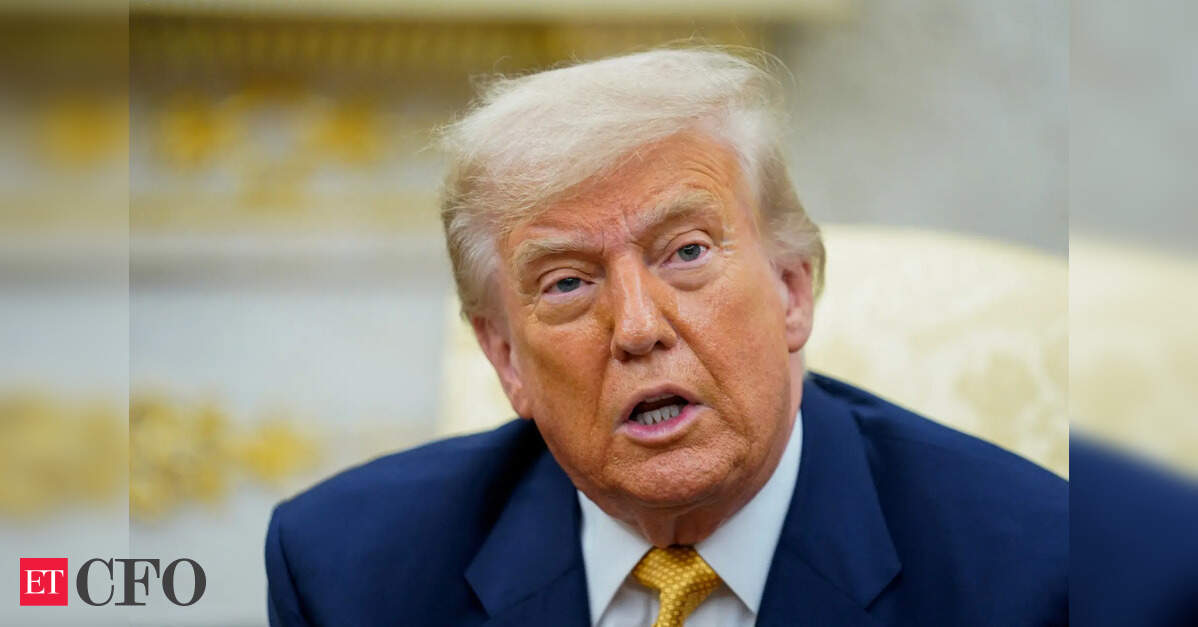U.S. President Donald Trump announced on Tuesday his plan to use import restrictions as a tool to lower drug prices. He stated that foreign suppliers would be pressured to reduce their prices. Speaking at a White House event with Republican lawmakers, Trump addressed the issue of prescription drug costs. He pledged to decrease the amount consumers pay for these medications.
“Drug companies will have lot of problems if they don’t agree to bring prices down,” he said, making clear he plans to use trade policy as leverage. “We are going to get drug prices down.” He also stated, “We will use import restrictions to force foreign suppliers to cut drug prices.”
Trump’s latest proposal involves a 200 percent tariff on imported pharmaceuticals. His stated aim is to boost domestic drug manufacturing and reduce America’s dependence on foreign supply chains.
At first, he said the plan wouldn’t take effect for another year. More recently, he hinted it could begin with a smaller tariff as early as 1 August and ramp up later.
Older Americans most at risk
More than 60 percent of adults in the US fill at least one prescription each year. That figure climbs sharply with age. According to the Centers for Disease Control and Prevention, nine out of ten Americans over 65 rely on prescription drugs to manage chronic health conditions.But the high cost of medicine is already keeping many from getting the care they need. Research by the American Association of Retired Persons found that nearly half of adults aged 50 and older have either skipped a prescription because of cost or know someone who has.
Drug prices already higher than the rest of the world
The United States pays more for prescription drugs than any other country, according to the Department of Health and Human Services. One reason for this is the heavy reliance on imports. Many of the most-used medications in the US are manufactured abroad.
Imports have more than doubled over the past two decades. In 2006, pharmaceutical imports stood at $65 billion. By 2019, they had jumped to $151 billion. These drugs cover a wide range of treatments, including for arthritis, cancer, schizophrenia, blood clots, osteoporosis and obesity.
Experts warn Tariff plan could backfire
Afsaneh Beschloss of RockCreek Group responded to Trump’s proposal, saying, “That would be potentially disastrous for every person because we need those pharmaceuticals, and it takes those companies a long time to produce them here in the U.S.”
Analysts at UBS echoed that concern. They said even a 12-month delay in enforcing the 200 percent tariff offers “insufficient time” for drug manufacturers to shift production to the US. A realistic timeframe, they believe, is closer to four to five years.
Tariffs could push prices even higher
The Pharmaceutical Research and Manufacturers of America (PhRMA) commissioned research showing that a 25 percent tariff alone would raise US drug costs by nearly $51 billion. A 200 percent tariff would almost certainly cause even greater damage.
The impact would be felt most in the generics market. Nearly 80 percent of generic tablets and capsules used in the US come from abroad. Brookings researchers warn that the narrow profit margins on generics mean even modest tariffs could push some drugs out of production altogether. For many patients, these are the only affordable options.
Growing health debt adds to the pressure
Medical debt in the US continues to rise. Americans collectively owe more than $220 billion in health-related expenses. Fourteen million people owe over $1,000 and three million owe more than $10,000.
The burden of higher drug prices will fall hardest on those who are already struggling. Older adults, disabled people and low-income families will likely bear the brunt of the consequences.
Rebuilding US drug production will take time
Pharmaceutical production moved overseas gradually over several decades. Experts say bringing it back cannot be rushed.
Even supporters of reshoring agree that the process needs to be managed carefully. A sudden shift could cause immediate drug shortages and price spikes, undermining the very goal of making medicines more accessible and affordable.
The broader aim of building a self-reliant drug supply is shared by many. But most agree the policy path to get there must avoid short-term shocks that could leave millions without the medicines they depend on.
Trump’s aggressive tariff proposal may play well politically, but the risk it carries for public health is difficult to ignore.

























